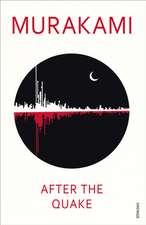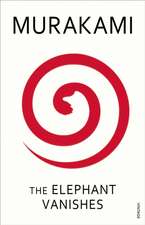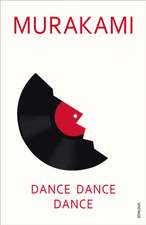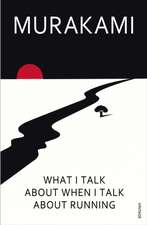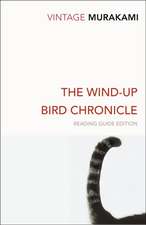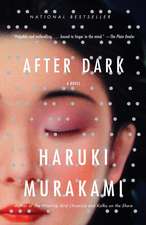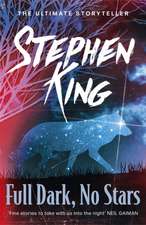Blind Willow, Sleeping Woman
Autor Haruki Murakami Traducere de Philip Gabriel, Jay Rubinen Limba Engleză Paperback – iul 2007
A young man accompanies his cousin to the hospital to check an unusual hearing complaint and recalls a story of a woman put to sleep by tiny flies crawling inside her ear; a mirror appears out of nowhere and a nightwatchman is unnerved as his reflection tries to take control of him; a couple's relationship is unbalanced after dining exclusively on exquisite crab while on holiday; a man follows instructions on the back of a postcard to apply for a job, but an unknown password stands between him and his mysterious employer. In each of these stories Murakami sidesteps the real and sprints for the surreal. Everyday events are transcended, leaving the reader dazzled by the master of his craft.
| Toate formatele și edițiile | Preț | Express |
|---|---|---|
| Paperback (3) | 51.48 lei 3-5 săpt. | +9.77 lei 10-14 zile |
| Random House – iul 2007 | 51.48 lei 3-5 săpt. | +9.77 lei 10-14 zile |
| Random House – 5 iul 2007 | 55.16 lei 26-32 zile | +22.43 lei 10-14 zile |
| Vintage Books USA – 31 aug 2007 | 75.24 lei 3-5 săpt. | +11.20 lei 10-14 zile |
Preț: 51.48 lei
Nou
9.85€ • 10.25$ • 8.13£
Carte disponibilă
Livrare economică 22 martie-05 aprilie
Livrare express 11-15 martie pentru 19.76 lei
Specificații
ISBN-10: 0099512823
Pagini: 436
Dimensiuni: 113 x 175 x 35 mm
Greutate: 0.24 kg
Editura: Random House
Colecția Vintage Books
Notă biografică
In 1978, Haruki Murakami was 29 and running a jazz bar in downtown Tokyo. One April day, the impulse to write a novel came to him suddenly while watching a baseball game. That first novel, Hear the Wind Sing, won a new writers' award and was published the following year. More followed, including A Wild Sheep Chase and Hard-Boiled Wonderland and the End of the World, but it was Norwegian Wood, published in 1987, which turned Murakami from a writer into a phenomenon. His books became bestsellers, were translated into many languages, including English, and the door was thrown wide open to Murakami's unique and addictive fictional universe.
Murakami writes with admirable discipline, producing ten pages a day, after which he runs ten kilometres (he began long-distance running in 1982 and has participated in numerous marathons and races), works on translations, and then reads, listens to records and cooks. His passions colour his non-fiction output, from What I Talk About When I Talk About Running to Absolutely On Music, and they also seep into his novels and short stories, providing quotidian moments in his otherwise freewheeling flights of imaginative inquiry. In works such as The Wind-Up Bird Chronicle, 1Q84 and Men Without Women, his distinctive blend of the mysterious and the everyday, of melancholy and humour, continues to enchant readers, ensuring Murakami's place as one of the world's most acclaimed and well-loved writers.
Descriere
A young man accompanies his cousin to the hospital to check an unusual hearing complaint and recalls a story of a woman put to sleep by tiny flies crawling inside her ear; a mirror appears out of nowhere and a nightwatchman is unnerved as his reflection tries to take control of him; a couple's relationship is unbalanced after dining exclusively on exquisite crab while on holiday; a man follows instructions on the back of a postcard to apply for a job, but an unknown password stands between him and his mysterious employer. In each of these stories Murakami sidesteps the real and sprints for the surreal. Everyday events are transcended, leaving the reader dazzled by the master of his craft.



